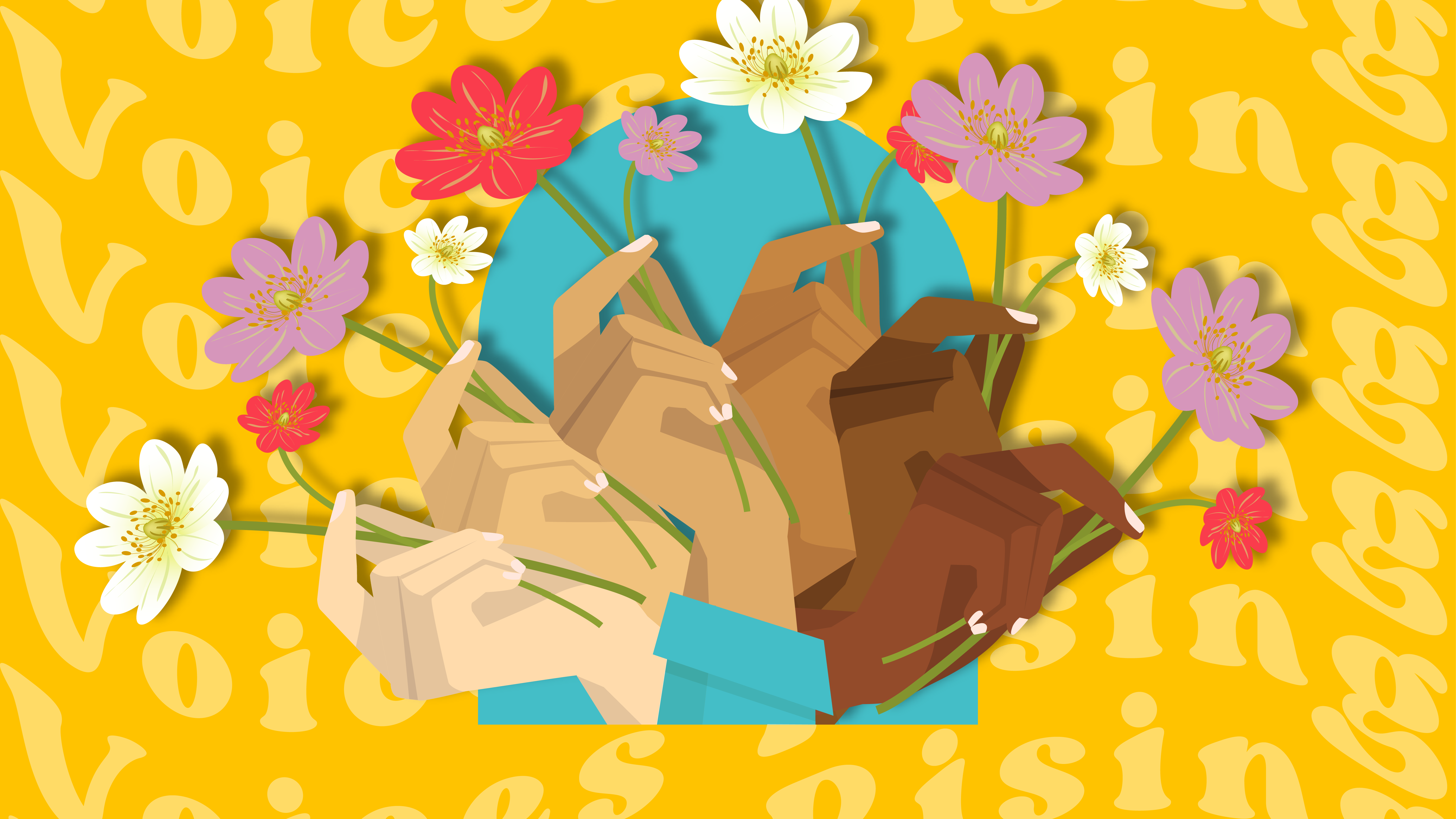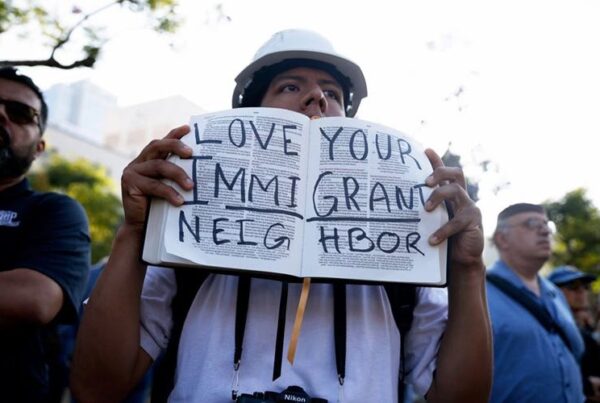Women are and have always been at the center of mission, compassion, justice, and peacemaking. In the words of the Queen B herself “Girls, run the world”! Listening to the stories of those who are most impacted by suffering and injustice will shape how we creatively love those on the margins. Sadly, it’s typical to find the same few people giving voice to how we as Christians can love our neighbor. If we want to be equipped to impact the world with the compassion and love of Jesus we not only need a diversity of voices, we need those who are more socio-economically and racially marginalized to be at the center. That follows what Jesus himself did in his ministry. It is thrilling to hear the voices of women of color at the center in this book telling the stories of their communities and the ones they serve alongside in solidarity.
My mother is the woman who taught me to write my own story. She had the courage to move to a new country and re-establish herself. Mi mama Colombiana is as beautiful and as she is compassionate. She taught me that no matter how poor or rich we were, no matter what others said about our community or the people we come from, I should always follow my dreams. She taught me that everyone is valuable to God and that the more voices are heard the better we can fully understand His word and the world. Her voice rises!
Migdalia is the woman in my community who has taught me the importance of telling my own story. She is an entrepreneur, a community leader, and a woman of faith. Her beauty salon has been a place of rest and rescue for me in a world of cross-cultural ministry. When I am there surrounded by women from Puerto Rico, Mexico, Honduras, and Ecuador taking time to take care of themselves. I am reminded that I matter. The intentional atmosphere reminds me that I am loved by God, not for what I do but for who I am. Being around other women of color is a catalyst for me to continue to urge the rest of the world that we have a story and we can tell it ourselves. The time has come for our voices to be heard, not as way to appease our ego’s but because the church is in need of considering new ways to approach ministry. Their voices rise!
Laquita, my neighbor, has raised two children into young adults on her own. Despite the challenges, the statistics, and the insane expectation that you can afford rent on a minimum wage. She worked two and sometimes three jobs to provide for her kids. She has managed two clinics, started a catering business and finished her degree while parenting her family through COVID. She fought illness that developed due to the stress of life on African American women. In the decade I’ve known her she has come over to drink wine, ugly cry, pray in tongues, eat chocolate and dream for a new way. At her daughter’s high school graduation we celebrated this next generation of black women achieving the influence the last generation just could not secure. She is the expert voice I want to hear when my own kids are driving me insane. Her voice rises!
Maria, my friend, will stand before a judge to hear if she can keep her asylum status. She might be sent back so she has had to decide that leaving behind her toddler is the best decision for the baby’s safety. Can you imagine being a parent and having to make that decision? After having to make the dangerous trek to this country, she will now have to return to danger not only in her country but at the hands of an individual who may try to find her. I pray for her daily. I pray God will provide a way for her to stay and continue to work and build a new life for herself and her family. She like many immigrant women have not only taken huge risk for her family but for one another. Her voice is rising!
Rachael grew up in the slums of Kampala. God gifted her as an evangelist and her community was transformed by the her leadership and that of other youth leaders. She went off to Oxford for training. Today she is one of the apologetic and evangelistic speakers in Uganda. She is the expert on the question “Is God fair? Why does he allow injustice?” She continues to congregate and lead a youth worship team in her hundred person church. She is proclaiming and loving out the gospel and allowing her voice to rise.
Now more than every we need to hear voices uprising from women who are working alongside those on the margins and who come from similar context to the many people we will live with and love. The time has come to center the women getting it done. There is a famous saying by icon Mexican actress Maria Felix “Soy mas cabrona que bonita, y mira que bonita soy” which loosely translated mean “I’m more bad-ass than beautiful and as you can see I’m very beautiful”. Women are the force of nature on the ground that mobilize the masses to show up and speak out. The women in this book not only capture that spirit in their own ministries but the stories they tell of the communities they serve. We as a church are in need of their biblical insight and creative approach to ministry. We can learn from them how to love and live at the intersection of worship, compassion and justice. From these women we can learn how sit for tea with the widow, bandage the wounded and march right to the center of power.
Our abuelas (grandmothers) taught us to fast and pray, to access our identity in Christ and not in the praise of others. They taught us to rely on the resources of the holy spirit and not self-sufficiency. They taught us to persevere through suffering, not to run from it. They modeled courage and faith in a manner only an abuela can. Abuelita theology was the bedrock for everyone in the community, not just the women. These voices rising will be a foundation for the generations to come, not just the women.
Recently, I was watching a documentary about women in Veracruz Mexico who have spent the last twenty years feeding hundreds of Central Americans migrants. These are women who have stood along the side of the rails of “La Bestia” to feed and accompany migrants along their dangerous journey to the US-Mexico border. It’s the poor feeding the poor. Taking their name from their hometown Guadalupe La Patrona, Las Patronas prepare the food which they package in plastic bags to give to migrants on the train as it passes through their community. These woman are not just practicing compassion they are a symbol of resistance against a system that criminalizes immigrants who are merely fleeing violence. There formerly unknown village now a symbol of hope for those along the journey. Poor, uneducated, women who started with cooking rice and beans are now themselves activists who speak truth to power with their actions.
Women of color embody a spirituality of sacrifice, making decisions and worshipping on the run with all the noise and chaos of our families and communities in the background. We don’t spend so much time debating the best approaches to loving God and loving neighbor- we neighbor. I know you will find wisdom in these podcast stories of joy, surprise, pain, surrender and faith that are captured here. May you hear the voices rising.
This excerpt is originally from the book
Voices Rising: Women of Color Finding and Restoring Hope
#readwomen








